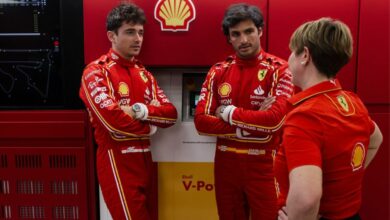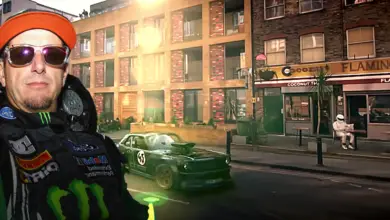Daniel Ricciardo Voices Frustration Over FIA Regulations Following Brazilian GP Ordeal
Daniel Ricciardo expressed his dismay at the FIA regulations that severely impacted his race in the Brazilian Grand Prix, leaving him and teammate Oscar Piastri a lap behind. His frustration centers around a controversial rule that undermined their chances for a comeback.
Key Takeaways:
- Unexpected Setback: Daniel Ricciardo’s Brazilian Grand Prix was initially compromised by an incident involving Alex Albon’s car, which led to a tyre damaging Ricciardo’s AlphaTauri AT04.
- Hope Amidst Chaos: A red flag in the race allowed both Ricciardo and Piastri to receive timely repairs from their team, briefly reviving their chances in the competition.
- Controversial FIA Decision: The enforcement of a specific FIA rule, mandating cars repaired under a red flag to restart a lap down from the pitlane, critically hindered Ricciardo and Piastri’s race, eliciting criticism from Ricciardo about the fairness of the rule.

The Brazilian Grand Prix was a tumultuous event for AlphaTauri’s Daniel Ricciardo, marked by a series of unfortunate incidents and contentious rulings. The race began with a problematic collision for Ricciardo, resulting from a stray tyre from Alex Albon’s vehicle, following a contact with Kevin Magnussen. This incident significantly damaged Ricciardo’s car, setting a challenging precedent for the rest of the event.
Oscar Piastri, Ricciardo’s teammate, was similarly caught up in the race’s chaotic developments. As both drivers faced potential race retirement, a red flag provided a crucial opportunity for repairs. This pause in the race allowed their team to work quickly and effectively, offering a brief moment of hope for their continuation in the Grand Prix.
However, this hope was short-lived due to a controversial FIA regulation. The rule in question required cars that were repaired in garages during the red flag period to restart from the pitlane, consequently putting them an entire lap behind the rest of the field. This regulation, as it was applied to Ricciardo and Piastri, sparked significant criticism from Ricciardo.
In his comments to the media, Ricciardo expressed his frustration:
“Was obviously frustrating, you look back at those things, and it’s nice it didn’t hit me, so then I was like, ‘hopefully, there’s a red flag, and we can get back in the race’. So we got to the pits, we heard there was red, so the team did a great job fixing the car. We’re ready to go, and then they tell me Oscar and I are starting a lap down. And yeah, all the excitement you have to race again just gets completely zapped out of you. There was not a green flag racing lap completed. I don’t know how we started the race a lap down, so that’s really frustrating. Something a bit lame in the rules. I think my argument is that if 15 cars had our issue today, are they going to start 15 cars in the pitlane a lap down and put five cars on the grid? No. I think they can use common sense and be a bit more open-minded. Frustrating that they ruined our day from the beginning.”
Ricciardo’s remarks highlight the complexities and potential shortcomings of current FIA regulations, igniting a debate on the need for more flexible and context-sensitive rule enforcement in Formula 1. His experience at the Brazilian Grand Prix serves as a poignant example of how regulations can have a profound impact on the outcome of a race, influencing not just the standings but also the morale and perspectives of the drivers involved.



